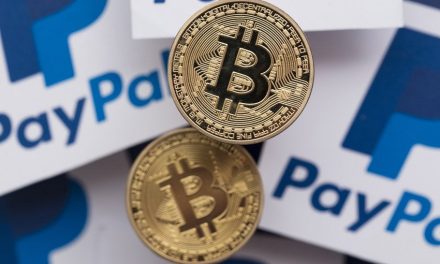With Bitcoin’s not so stellar status nowadays, it is still undeniable that blockchain technology can bring a positive change to today’s finance and banking.
We saw how fast-changing technology could influence the financial market. Instead of turning their back from it, central banks and the Federal Reserve should be harnessing this technology to make it work to their advantage.
How Blockchain Can Change the Financial Market
In essence, blockchain is a decentralized or distributed system that records transactions in a way that is efficient, verifiable, and permanent. The system creates multiple electronic ledgers that are accessible by anyone with a computer but cannot be modified or manipulated. Instead of having a bank verify the transaction, blockchain uses multiple agents.
This innovation can resolve multiple issues with the current financial systems. As an example, the slow and costly transactions like making payments, verifications and confirming whether the transaction was successful. Charges for domestic payments are expensive and even higher for cross-border transactions that can take days to process.
The technology like blockchain can revolutionize these systems and make it faster, efficient and less expensive. Financial institutions can complete transactions without going through a middleman. By changing blockchain’s privacy policy, they can limit the access to their records, only including banks or anyone within their network. This way, banks can transfer funds without delays, at a low-cost and can be verified almost instantly.
Banks, business, and their customers can greatly benefit this type of innovation. Digital cash is easier to use. Payments across businesses, financial institutions, and people are more secure, making it harder to use for illegal activities and tax evasion. The only disadvantage here would be that central banks are left with no power to oversee and regulate financial transactions may it be domestic or international.
However, they may want to take cues from the central banks in China, Singapore, Sweden, and Uruguay. They are making plans to launch a digital version of their respective currencies in order to hold their place on local payment systems. These countries and their governments are seeing digital currencies as a method to expand and improve financial inclusions in their territories.
Challenges of a Decentralized Financial System
The US Federal Reserve’s reluctance may also be due to the fact that Venezuela and Russia are using cryptocurrency to help them dodge international sanctions. Because of this, they may be losing a big opportunity to improve their retail and bank-to-bank transaction systems by ruling blockchain out of their future plans.
But then again, blockchain cannot stand as an alternative to central banks. People will not hold such a system in high esteem as they see central banks or the Fed. The trust built on a decentralized system can be fickle and fragile. It can potentially bring down financial systems and ultimately the economy once that trust is gone.
What they can take here is that central banks should always seek to improve and adapt with times and technology. The trust that people have with their institution is their greatest asset. And, from that asset, they can build and grow a better and stronger financial market that is efficient and reliable.















